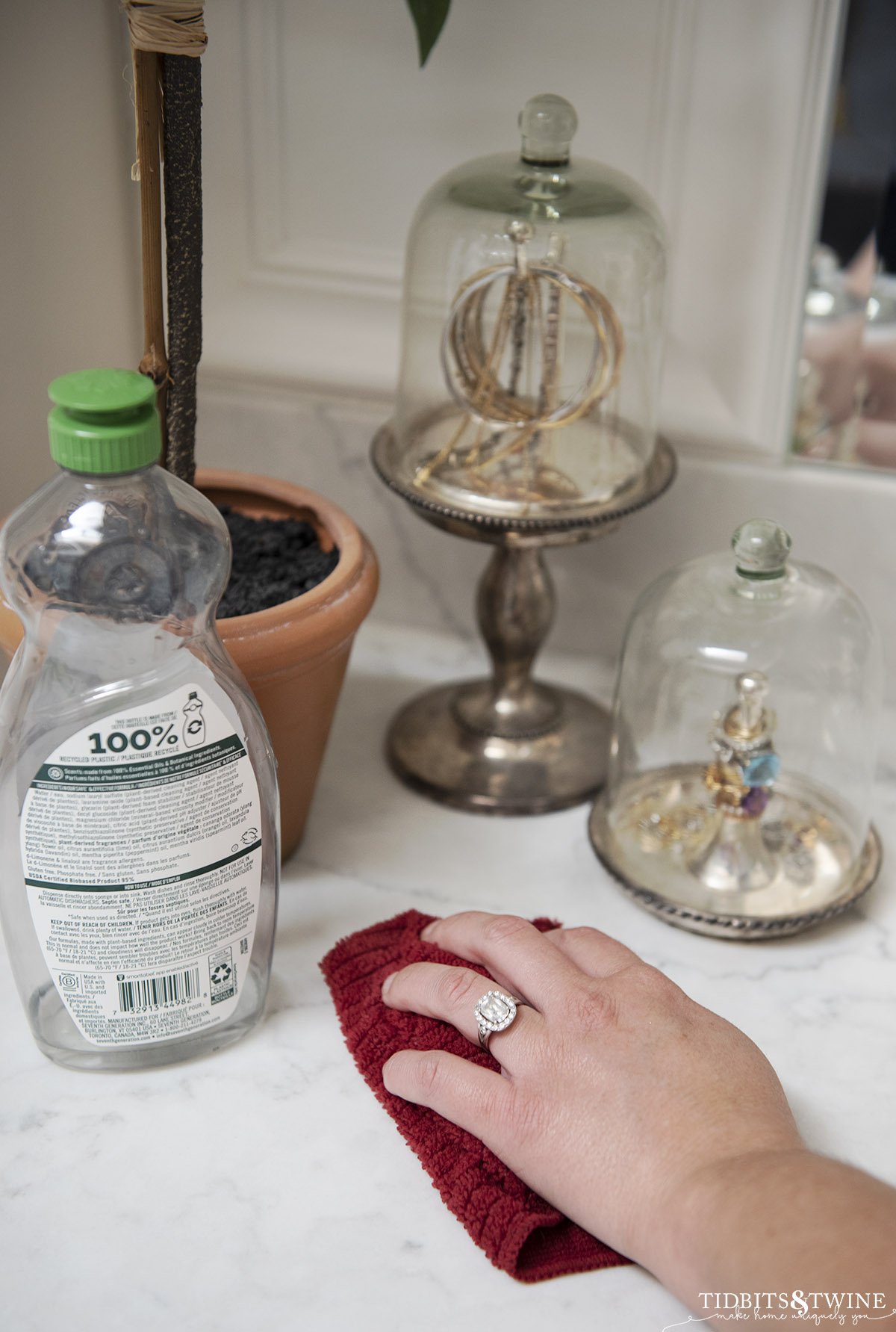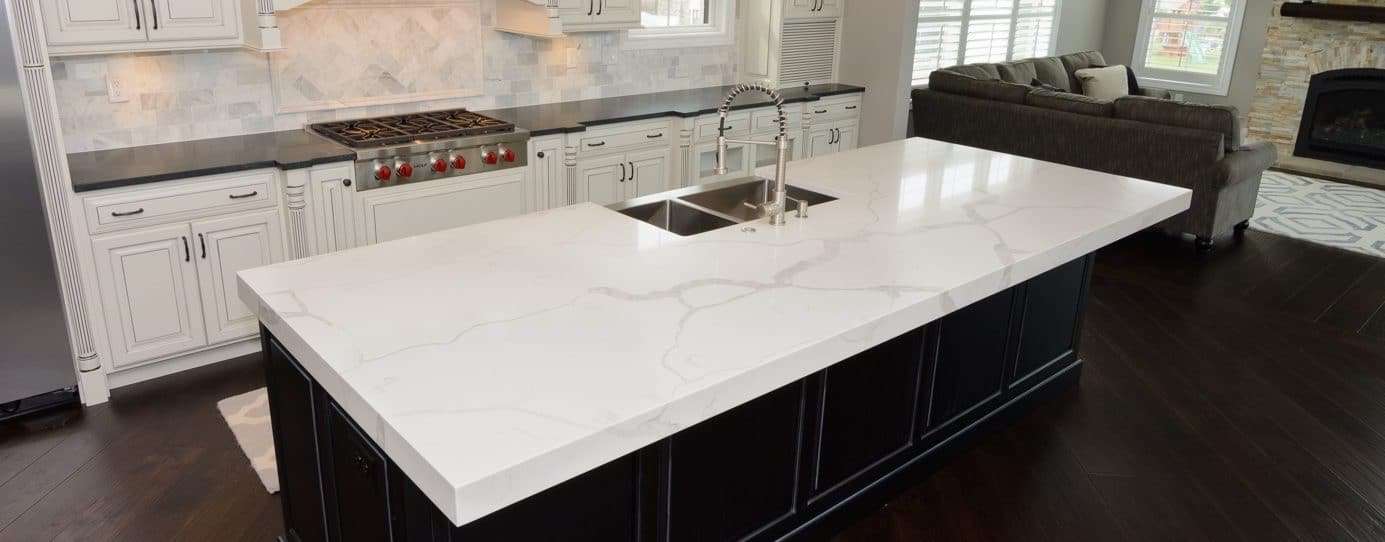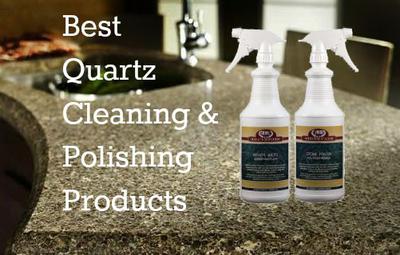Cleaning Quartz Countertops Safely
Quartz countertops are renowned for their durability, aesthetic appeal, and low maintenance requirements. However, keeping them spotless and free of streaks can be a bit of a challenge if not done correctly. This article delves into the best practices for cleaning quartz countertops, ensuring they remain pristine and streak-free.
Composition and Characteristics
Quartz countertops are engineered stones made from natural quartz crystals mixed with resins and pigments. This composition makes them incredibly hard and resistant to scratches, stains, and heat. Unlike natural stone countertops such as granite or marble, quartz is non-porous, which means it does not absorb liquids and is more resistant to bacteria and mold.
Benefits of Quartz Countertops
One of the key benefits of quartz countertops is their ease of maintenance. Their non-porous nature makes them less susceptible to stains and bacterial growth, making them an excellent choice for kitchens and bathrooms. Additionally, quartz countertops come in a variety of colors and patterns, providing ample choices for homeowners to match their décor.
Common Issues: Streaks and Smudges
Despite their many advantages, quartz countertops can show streaks and smudges if not cleaned properly. These streaks are often the result of improper cleaning techniques or using the wrong cleaning products. It’s essential to understand the correct methods to maintain the countertop’s luster and ensure it remains streak-free.

Importance of Regular Cleaning
Regular cleaning not only keeps your quartz countertops looking beautiful but also extends their lifespan. By incorporating simple daily cleaning routines and using the right products, you can maintain their shine and prevent the buildup of grime and stains. Proper care also helps in preserving the countertop’s surface from potential damage.
Gentle Wiping with Microfiber Cloth
The first step in maintaining a streak-free quartz countertop is to use a soft microfiber cloth for daily wiping. Microfiber cloths are highly effective at capturing dust and dirt without scratching the surface. Simply dampen the cloth with water and gently wipe the countertop to remove any loose debris or spills.
Using Mild Dish Soap
For a more thorough daily clean, mix a small amount of mild dish soap with warm water. Avoid using abrasive cleaners or pads, as these can damage the surface. Dip the microfiber cloth into the soapy solution, wring it out, and then wipe the countertop. This method effectively removes grease and grime without leaving streaks.
Rinsing and Drying
After cleaning with soap, it is crucial to rinse the countertop thoroughly with clean water. Soap residue left on the surface can lead to streaking once it dries. Use another clean microfiber cloth dampened with water to rinse off the soap. Finally, dry the surface with a dry microfiber cloth to prevent water spots and streaks.
Avoiding Common Mistakes
One common mistake is using too much water or soap, which can leave residues that cause streaks. Another is using rough sponges or scrubbers that can scratch the quartz. Always stick to microfiber cloths and mild cleaners to ensure the surface remains pristine and streak-free.

Dealing with Stubborn Stains
Identifying the Stain Type
Before attempting to clean a stubborn stain, it’s important to identify its type. Common stains on quartz countertops include food stains, watermarks, and oil-based stains. Understanding the nature of the stain will help in choosing the right cleaning method and avoiding further damage.
Baking Soda Paste for Tough Stains
For food and drink stains, a baking soda paste can be quite effective. Mix baking soda with a small amount of water to create a thick paste. Apply the paste to the stained area and let it sit for a few minutes. Gently scrub with a soft cloth or sponge, then rinse thoroughly with water and dry with a microfiber cloth.
Using Rubbing Alcohol for Grease Stains
Grease and oil stains can be more challenging to remove. In such cases, rubbing alcohol can be a powerful cleaner. Mix equal parts of rubbing alcohol and water, and apply it to the stained area. Let it sit for a few minutes, then wipe it away with a microfiber cloth. Rinse with water and dry the surface to prevent streaks.
Preventive Measures
Preventing stains is always easier than removing them. Use cutting boards, trivets, and coasters to protect your quartz countertops from potential stains and damage. Promptly cleaning up spills and avoiding placing hot pans directly on the surface can also help maintain the countertop’s pristine condition.

Long-Term Care and Maintenance
Sealing and Polishing
While quartz countertops do not require sealing, some homeowners opt to use a specialized quartz polish to enhance the shine and add a layer of protection. These polishes can help in reducing the appearance of minor scratches and add a luster to the surface. However, it’s important to use products specifically designed for quartz to avoid damage.
Avoiding Harsh Chemicals
To maintain the integrity of your quartz countertops, avoid using harsh chemicals such as bleach, ammonia, or strong acidic cleaners. These chemicals can break down the resin binders in the quartz, leading to discoloration and damage over time. Stick to gentle, pH-balanced cleaners for regular maintenance.
Regular Deep Cleaning
In addition to daily cleaning, schedule regular deep cleanings to keep your quartz countertops in top shape. Use a non-abrasive cleaner or a mixture of dish soap and water to thoroughly clean the surface. Pay special attention to edges and corners where grime can accumulate. Rinse well and dry with a microfiber cloth to avoid streaks.
Addressing Minor Damages
If your quartz countertop suffers from minor chips or scratches, address them promptly to prevent further damage. For small chips, a clear epoxy resin can be used to fill and seal the area. For scratches, polishing the surface with a quartz-safe polish can help minimize their appearance. Always consult with a professional for significant damages to ensure proper repair.

Common Mistakes to Avoid
Using Abrasive Cleaners
One of the most common mistakes is using abrasive cleaners or scrubbing pads on quartz countertops. These can scratch the surface and dull the finish. Always use non-abrasive, pH-balanced cleaners and soft cloths or sponges.
Overusing Water and Soap
Overusing water and soap can leave residues that dry into streaks. Use minimal amounts of both and ensure thorough rinsing and drying to keep your countertops streak-free.
Ignoring Spills
Ignoring spills can lead to stains and streaks as the liquid dries and adheres to the surface. Promptly cleaning up spills, especially from acidic substances like lemon juice or vinegar, is crucial to maintaining the countertop’s appearance.
Using Wrong Cleaning Tools
Using rough cleaning tools such as steel wool or scouring pads can damage the quartz surface. Stick to microfiber cloths and non-abrasive sponges to clean your countertops safely and effectively.

Can I use vinegar to clean my quartz countertops?
While vinegar is a popular household cleaner, it is not recommended for quartz countertops. The acidic nature of vinegar can break down the resin binders in quartz, leading to dullness and potential damage. It’s best to use a pH-balanced cleaner or mild dish soap and water for cleaning quartz surfaces.
How often should I clean my quartz countertops?
Daily cleaning with a damp microfiber cloth and mild dish soap is ideal for maintaining quartz countertops. Regular cleaning helps prevent the buildup of grime and stains, keeping your countertops looking their best. For a more thorough clean, perform a deep cleaning at least once a week.
What should I do if my quartz countertop gets scratched?
For minor scratches, you can use a quartz-safe polish to minimize their appearance. If the scratch is deep, it’s best to consult with a professional for repair. Avoid using abrasive pads or polishes not specifically designed for quartz, as they can cause further damage.
Is it necessary to seal quartz countertops?
Unlike natural stone countertops, quartz does not require sealing due to its non-porous nature. However, using a quartz polish can enhance the shine and add an extra layer of protection. Always use products designed specifically for quartz to avoid any adverse effects.
Can I place hot pots directly on quartz countertops?
It is not advisable to place hot pots or pans directly on quartz countertops. While quartz is heat resistant, sudden temperature changes can cause thermal shock and lead to cracking. Always use trivets or hot pads to protect your countertops from heat damage.

How to Clean Kitchen Countertops: Granite, Quartz, Marble u0026 More

How to Clean Quartz Stone Countertop – Best Way to Clean Quartz, Stone Granite Marble

Quartz Cleaning and Polishing Products

How to Clean a Quartz Countertop: 11 Steps (with Pictures)

How To Clean Quartz Countertops Without Streaks
Assuming you are starting with a clean countertop, you will need:
-water
-a clean, soft cloth
-a mild dish soap
-a lint-free cloth or paper towel
-quartz cleaner (optional)
1. Wet your soft cloth with water and wring it out so that it is damp but not dripping.
2. Rub the damp cloth over the entire surface of the countertop in a circular motion to loosen any dirt or grime.
3. If the countertop is still dirty, add a drop or two of mild dish soap to the cloth and continue rubbing.
4. Rinse the countertop with clean water and dry it with a lint-free cloth or paper towel.
5. If you want to disinfect the countertop or remove stubborn stains, use a quartz cleaner according to the manufacturer’s instructions.
Why does my quartz countertop look streaky?
Quartz countertops are one of the most popular choices for kitchen and bathroom countertops. They are beautiful, durable, and easy to care for. However, sometimes quartz countertops can look streaky. There are a few different reasons why this might happen.
One reason why your quartz countertop may look streaky is that it wasn’t properly sealed. Quartz is a porous material, so it needs to be sealed in order to prevent staining. If your countertop wasn’t properly sealed, then it’s more likely to absorb spills and show stains. To prevent this, make sure to have your countertop sealed by a professional before use.
Another reason why your quartz countertop may look streaky is that it wasn’t installed properly. If the countertop wasn’t level when it was installed, then liquids can pool in the low spots and leave behind streaks. This can also happen if the countertop wasn’t installed flush with the backsplash. Make sure your countertop is level and flush with the backsplash before using it to prevent streaking.
If your quartz countertop looks streaky, don’t worry! There are a few easy ways to fix it. First, try cleaning the countertop with mild soap and water. If that doesn’t work, you can try using a glass cleaner or a streak-free cleaner. If those don’t work, you can try polishing the countertop with a quartz polish.
If your quartz countertop still looks streaky after trying all of these cleaning methods, then it’s probably time to call a professional. A professional will be able to tell you if the streaking is caused by a manufacturing defect or an installation error. They will also be able to properly clean and seal the countertop to prevent future streaking.
Related articles:
- Caesarstone Quartz Countertops
- Quartz Countertops Cleaning
- Quartz Countertops Tile Backsplash
- Beveled Edge Quartz Countertop
- Quartz Countertop Choices
- Quartz Countertop Types
- Grey Brown Quartz Countertops
- Quartz Countertops Pattern
- Quartz Countertops DIY
- Kitchen Island Quartz Countertop